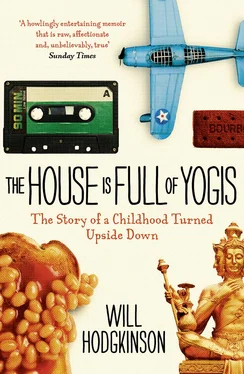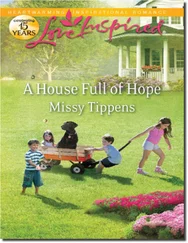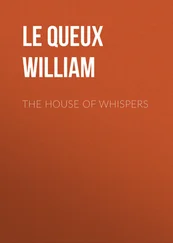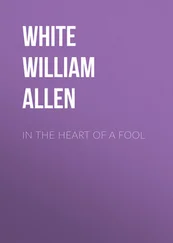‘What’s the point in learning Latin?’ I asked. ‘It’s not like you’re ever going to go to Greece.’
Meanwhile, I was concerned that the topic of that lunch break’s conversation at school had been the various animals my classmates had. Everyone apart from me seemed to have a faithful dog, an entertaining guinea pig or, in the case of Christopher Tobias, a parrot that could say ‘bollocks’ every time it saw an elderly person. There was a tabby cat who padded about in our kitchen every now and then, but that was it. I was feeling particularly miserable after scoring one out of ten in a mathematics test, so the lack of an animal in the house contributed to a wave of melancholy I believed it was the duty of the parents to do something about.
‘I’ve been thinking,’ I said, thumping the bottom of a bottle of tomato ketchup until a tiny globule landed on my chop, ‘can we get a pet?’
‘No!’ screeched Mum. ‘What a horrible thought. What has an animal ever done for me?’
‘Provided you with a lamb chop,’ offered Tom.
‘Pets are a suburban indulgence. It’s not for the animal’s sake that you have it, is it?’
‘What about the smallest pet going, like a hamster, or a gerbil?’
‘Not even an ant.’
The following weekend we visited Nev’s parents. Min and Pop, as Nev called them, lived in Minehead in Somerset, in a 1930s house along a street so quiet you felt conspicuous walking along it. Before that they had lived in a similar house in Tadworth in Surrey. They moved to Minehead, on Granny’s insistence and against the wishes of Grandpa, after he retired as a tax inspector. He had stayed in the same job, in the same office, in the same chair, for forty years. He would have stayed in the same house too, had he been allowed.
‘Say what you want about Pop,’ said Nev, as we drove down to Minehead, ‘at least he sticks to his guns.’
Grandpa wasn’t one for change. He only ate two things: bananas and baked beans on toast. He only liked one piece of music (the Hallelujah Chorus). His chief reason for wanting to stay in Tadworth, beyond his conviction that change of any kind could only ever be for the worse, was that he liked his garden. Granny, however, was resolute, pointing out that the house in Minehead still had a garden big enough to grow all the fruit and vegetables he wanted. Not that he ate them. Neither did Granny. She only trusted food if it came out of a tin. A few years later she found a house with a smaller garden. Then she made him move into a first-floor flat. Then he died.
On that trip, however, he was still going strong. He pressed 50p coins into my and Tom’s palms, with the sense of occasion with which he had been doing it since we were four and six.
‘Thanks,’ said Tom, tossing the coin in the air. ‘I’ll open a Swiss bank account.’
‘Good idea,’ said Grandpa, tapping his nose with his index finger. ‘Look after the pennies and the pounds will look after themselves.’
Sunday lunch consisted of cold meats and tinned vegetables in the pathologically neat dining room, among paintings of horses and scenes of rustic splendour, which was the closest Granny and Grandpa got to seeing the countryside; they didn’t actually appear to like it despite living in it. If they did go for a rural outing it involved driving to a National Trust car park, sitting in the car, eating sandwiches from a Tupperware box, and driving home again. Mum mentioned we were thinking of going abroad for our next holiday.
‘Wouldn’t if I were you,’ said Grandpa, cutting up his beans on toast into neat little squares.
‘Why not?’
He stopped cutting his toast for a moment and looked up. ‘Went to France once. Won’t be doing that again.’
I decided to attempt to alleviate the mood with a joke. The one about the hairy bum had got a big laugh at the fireworks party.
‘So she said …’ and I held out my arms for the killer line, ‘“… I’ve looked all over my Hairy Bum but I can’t find my Willy.”’
Granny made an indistinct humming noise. Grandpa poked bleakly at a tinned carrot. Tom shook his head. Eventually Granny held up a plate and said to nobody in particular: ‘More Spam?’
For the rest of the afternoon we sat in front of the television, as Granny chewed on an endless stream of toffees from a bowl on a side table and Grandpa dozed off in an armchair. Eventually I asked Granny if I could have one of her toffees. She turned to Mum and said: ‘ May he, Mummy?’
They watched football. Granny complained about the way the players all hugged each other when they scored a goal. They watched Coronation Street , and Granny wondered why television always had to be accompanied by such awful pop music. (I think she was talking about the theme tune.) Mum got her talking about newspapers for a while. Granny told us she didn’t approve of the way men in the news wore their hair so long, but then journalism was not a place that attracted the right sort of people. Nev would have been much better off sticking to accountancy.
It was the night of the dinner party at the Lees’ house. Hugh Lee answered the door in a cravat and jumbo cords, clutching a dusty bottle of wine, while Penny could be spotted in the kitchen, briskly moving from oven to hob. As Mum and Nev, looking young and garish against the muted colours and matured sensibilities of Hugh and Penny Lee, drank wine downstairs and talked loudly about how awful their parents were, Will and I disappeared into the attic. I looked through the stack of records leaning against the record player. Most of them were jazz and classical but there were a few interesting ones in there too, not least Electric Ladyland by The Jimi Hendrix Experience.
‘Wow. They’re a bit rough,’ said Will, staring at the dank and gloomy cover of the album, with its photograph of naked women apparently made to look as bad as possible, as I took the scratched and dusty vinyl out of the inner sleeve and put it onto the record player.
‘That’s what I thought,’ I said. ‘Where did he get them from?’
‘He shagged them all. You could do that in those days.’
The Sixties was another world, a world of terrifying, beautiful women in multicoloured clothes and dark, visionary men on cosmic journeys. It certainly wasn’t much like the worlds I knew: of Granny and Grandpa’s unspoken resentments; or the interiors’ magazines-inspired colour schemes of 99, Queens Road; or even the discreetly wealthy good taste of the Lees. As the searing-knife guitar of ‘Gypsy Eyes’ was replaced with ‘Burning of the Midnight Lamp’s musical shrug detailing the end of a love affair, with Jimi Hendrix making heartbreak sound so very cool by the smiling way he says ‘loneliness is such a drag’, we sat on beanbags opposite one another, the record player between us, staring at the album spinning round and taking it in turns to hold the sleeve.
‘He died, you know,’ I said to Will. ‘I heard a radio programme about it. Apparently he was killed by The Man.’
‘Who is The Man?’
‘Generally it’s the government,’ I said with a sigh, hands behind my head as I sunk deeper into the beanbag. ‘In Jimi Hendrix’s case it was the record company. They wanted to wall him in. Imprison his spirit. You can’t tame a free bird like Jimi.’
‘The ‘suits’,’ said Will, philosophically.
We nodded, solemnly and knowingly. We heard the sound of footsteps on the metal ladder.
‘Is that The Man?’
It was Penny Lee. ‘Hello, you two,’ said Will’s mother, with a bright smile. ‘I thought I’d bring you some supper.’ Somehow she had managed to carry up the ladder with her a tray with plates of baked beans on toast, glasses of apple juice, two bananas and a stack of Bourbons. And she had a dinner party to host. ‘What is that bizarre music?’
Читать дальше












